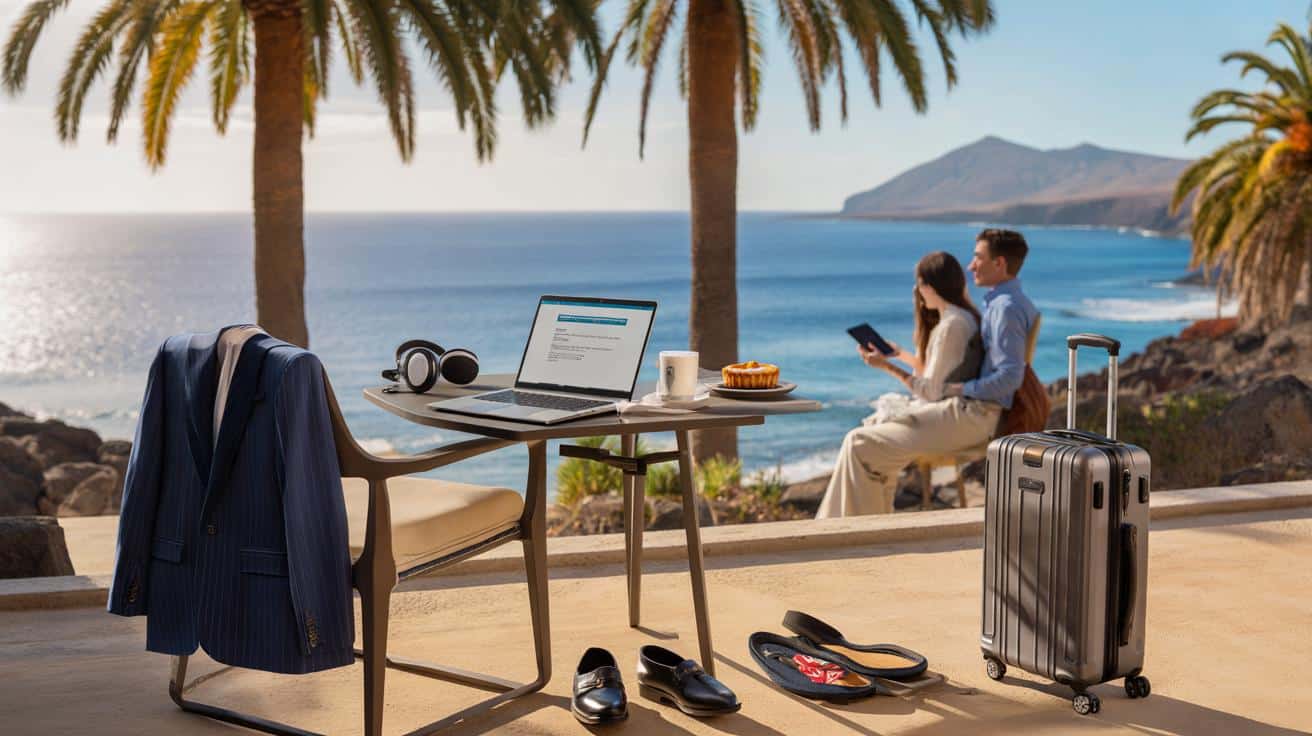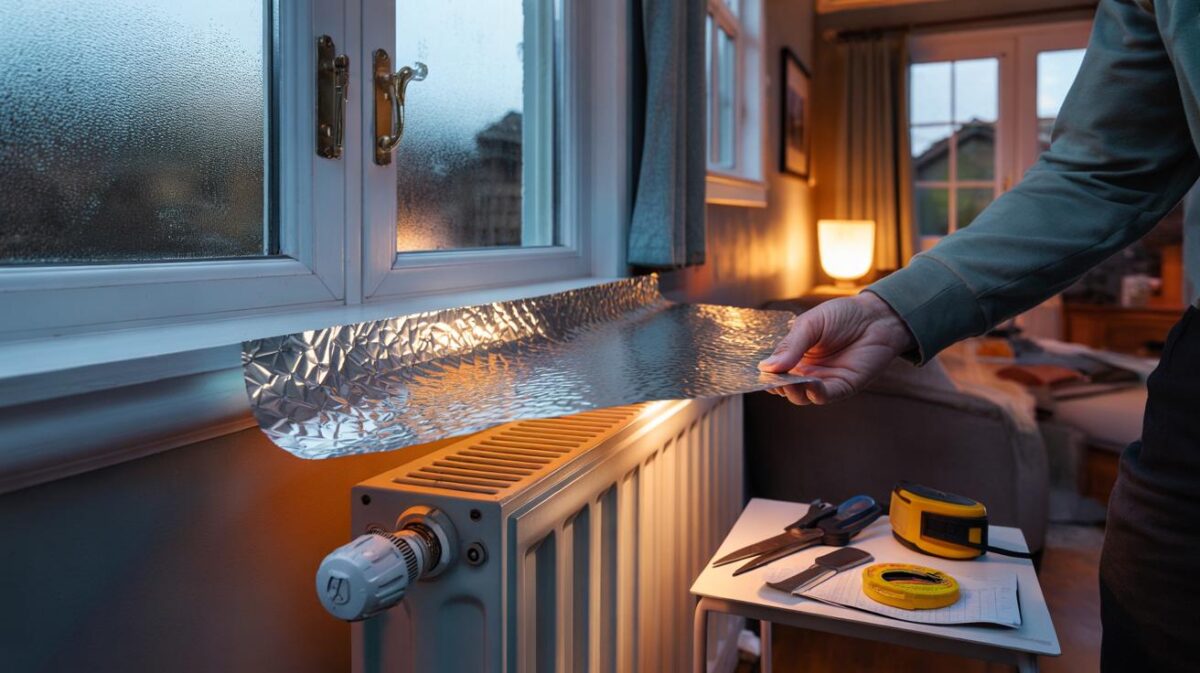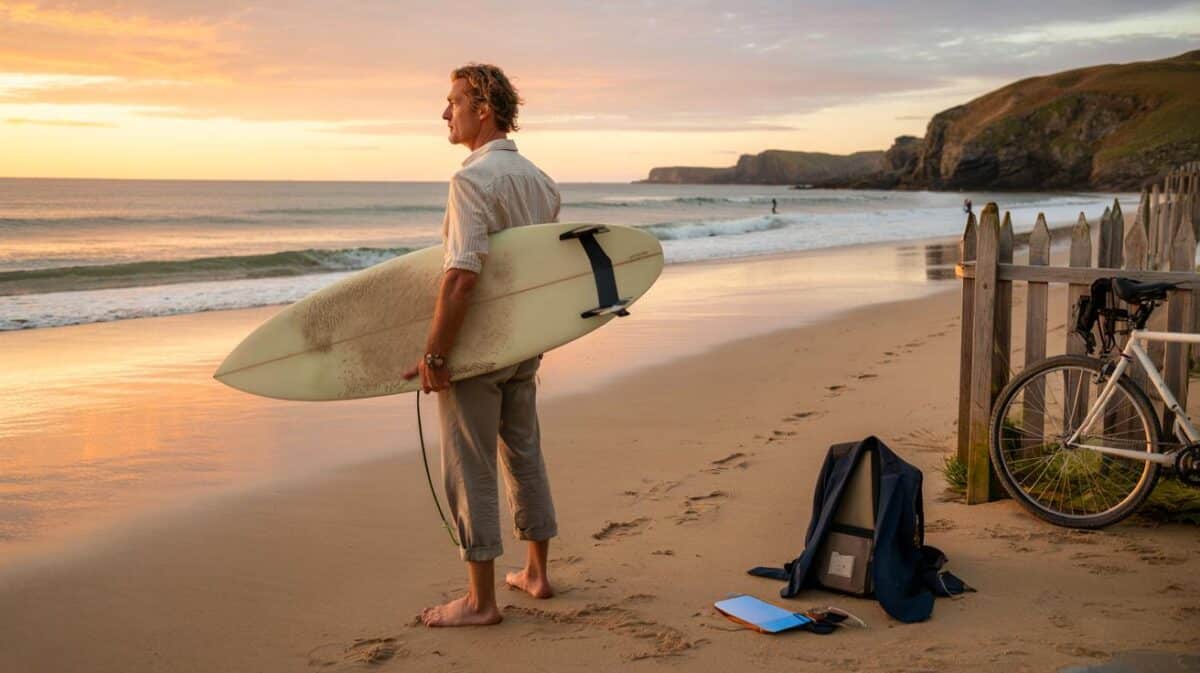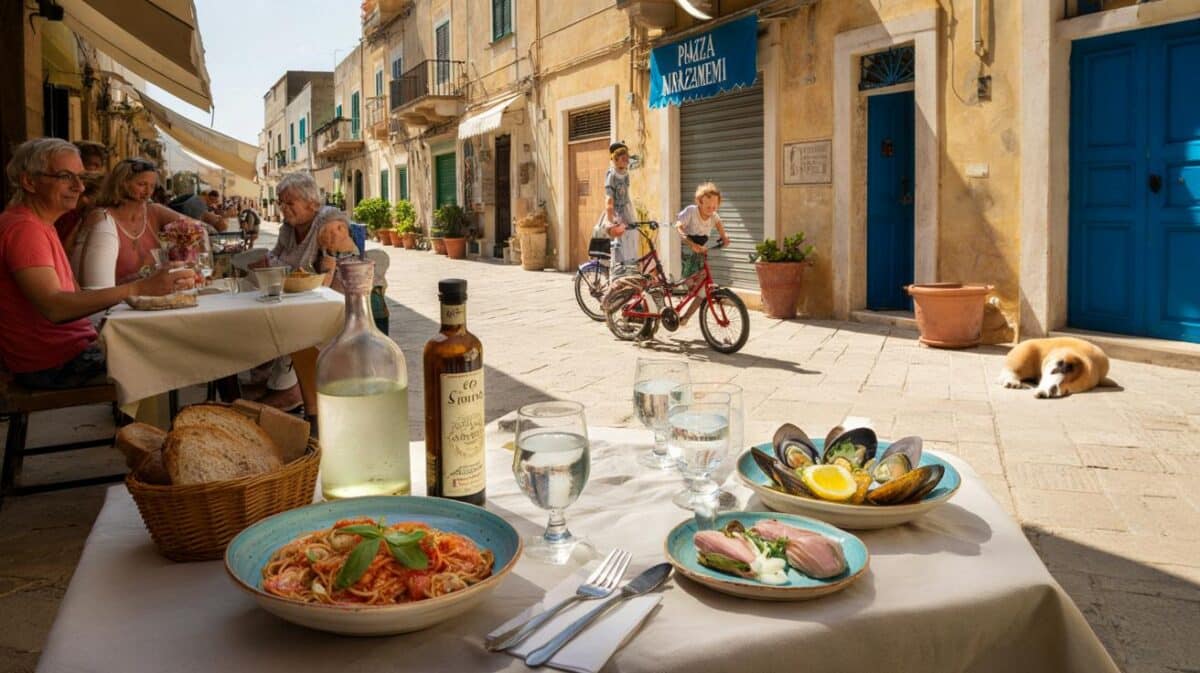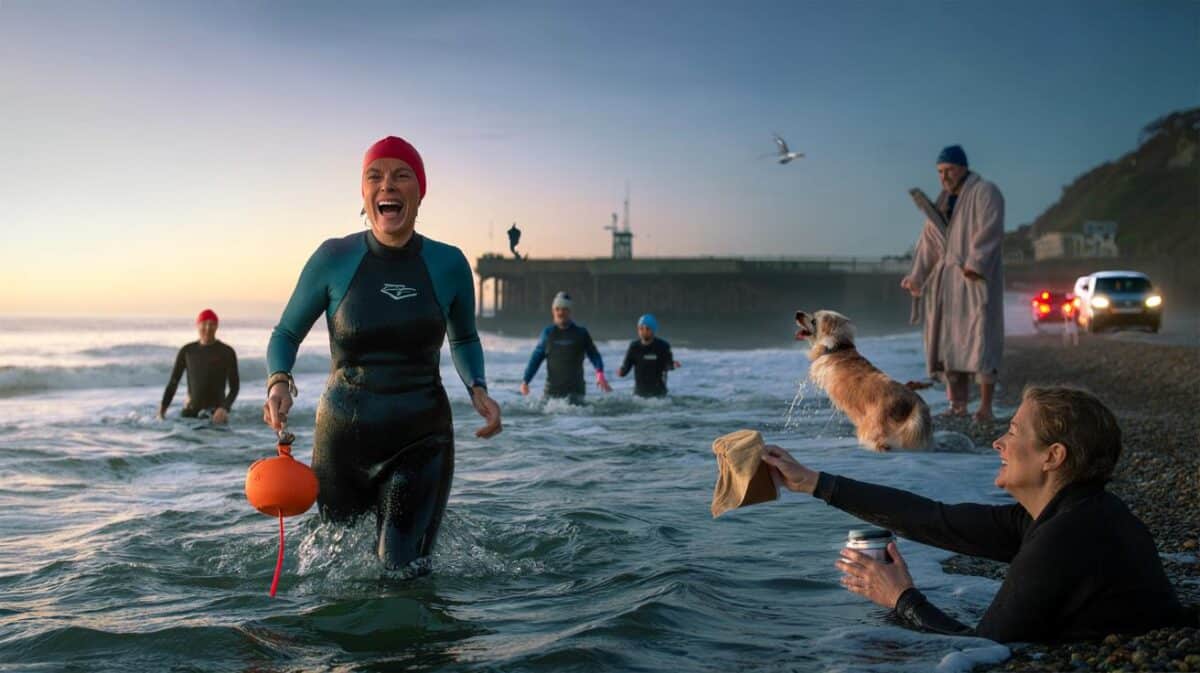This year, a different picture keeps popping up in group chats and airport lounges. More people are swapping late-night decks for early flights, chasing light, warmth and a softer tempo under palms. It’s not laziness. It’s a recalibration of what a good year looks like.
I watched a man in a navy suit pull a roller bag across Gatwick at 6am, laptop tucked like a passport, Teams notifications blinking blue through the sleeve. He wasn’t on holiday, not really. He was heading to the Canaries for three weeks of remote calls, sun on his breaks, sea at five. Near him, a young couple debated jobs and visas between sips of flat white, one sentence about “band progression”, the next about Lisbon rents and pastel de nata.
We’ve all had that moment where the spreadsheet blurs and the sky outside looks almost foreign.
He smiled when the gate opened.
It wasn’t a blip.
From ladder to lounger: what’s really happening
Across offices and kitchen tables, the trade-off is shifting: **sunshine over status**. People aren’t rejecting work; they’re rejecting the grind as the only story. Hybrid weeks made geography negotiable, and once the plug loosened, a whole coastline opened up. Promotions promise more influence, yet often come wrapped in late-night messages and invisible hours. A lighter, longer day under palm leaves asks a quieter question about time.
Take Maya, 31, a product manager who turned down a senior title to spend January in Tenerife with strong Wi‑Fi and a team that cared more about outcomes than chairs. She logged on early, swam at lunch, delivered on metrics, slept well. Her promotion could wait; her winter couldn’t. The UK four‑day week pilot showed many firms could hold productivity with fewer hours, and that changed the room. Once you see that output lives beyond the office, it’s hard to unsee.
This isn’t only about beaches. It’s about value. Stagnant real wages, steep rents and commutes that tax the spirit make a new calculation feel rational. A promotion can add money, but also tasks that spill over. A season abroad replaces grey light with blue, and the brain behaves differently in blue. Call it a nervous system decision: **flexibility is the new raise**, and it wears flip‑flops without shame.
How to swap promotions for palm trees without tanking your career
Start small and frame it as a pilot. Share dates, time zones, deliverables and how you’ll make handovers crisp. Book a place with guaranteed fibre and a quiet desk, then build a daily rhythm that respects your team’s core hours. Block “deep work” like a meeting, and protect it like one. *The climb can wait; the tide won’t.*
Keep your manager’s confidence close. Over‑communicate early, show wins fast, and bring your colleagues along with quick Looms and simple dashboards. Time zones can bite, so build buffers and automate status updates. Don’t wing taxes or visas; read the policy, ask HR, and avoid countries that turn a month into a tax residency puzzle. Let’s be honest: nobody actually does that every day.
Ask for feedback in week two, not after the flight home, and fold it into your routine so trust compounds. The goal isn’t to vanish; it’s to be reliably present from a sunnier table.
“If I can see outcomes, I don’t mind if you’re in Manchester or Madeira,” says Paula, an HR lead at a mid‑sized tech firm. “Be explicit, be reachable, and make me look clever for saying yes.”
- Pick a place with 100 Mbps+ and a backup hotspot.
- Share a one‑page plan with OKRs, hours and contacts.
- Bundle meetings to two windows; guard one for deep work.
- Check insurance, healthcare and 30/90‑day entry rules.
- Plan re‑entry: document learnings and a handover debrief.
What it says about Britain’s idea of success
Britain has always celebrated the graft, the late train, the pint after midnight. Something softer is creeping in. A generation raised on side gigs and Slack is designing years with seasons, not sprints. They’re trialling **mini‑retirements**, carving four bright weeks now instead of one big promise later. That rubs up against old scripts, yet it also hints at a sustainable tempo for work that lasts decades. The weather may be British; the mindset is not. Maybe prestige still matters, just not as much as daylight on skin and a life that fits. This isn’t a manifesto against ambition. It’s a remix that swaps noise for intent, and status for stories you can tell at dinner.
Friends are comparing sunsets like they used to compare payslips. Some will come back with a sharper appetite for the ladder; others will build a different ladder entirely. Either way, the office isn’t the only room where careers get made.
| Point clé | Détail | Intérêt pour le lecteur |
|---|---|---|
| Seasonal working | Plan 4–8 weeks remote with clear outcomes and check‑ins | Gives sun without burning bridges at work |
| Trust signals | Fast wins, visible dashboards, time‑zone etiquette | Makes managers relaxed about location |
| Legal basics | Visa limits, tax thresholds, insurance and payroll | Avoids nasty surprises and keeps it repeatable |
FAQ :
- Is this just a fad?Trends fade, but flexibility has stuck since hybrid work normalized. Sun seasons are simply the lifestyle version of that shift.
- Won’t turning down a promotion hurt me?It can, if you vanish. If you deliver outcomes and communicate a timeline, many managers respect the long game.
- Where are Brits actually going?Canary Islands, southern Spain, Portugal and Madeira top chats for sun, flights, fibre and friendly time zones.
- How do I raise this with my boss?Bring a one‑page plan with dates, hours and KPIs. Offer a two‑week trial, then a review. Make “yes” easy.
- What about tax and visas?Stay under tourist limits, avoid earning locally, and check HR guidance. If in doubt, keep trips short and well documented.

